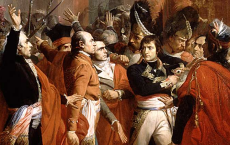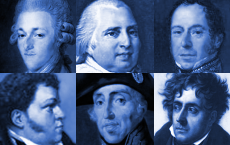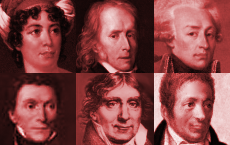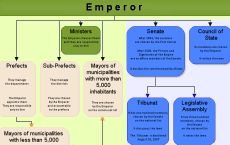A reconciler Head of State
Napoleon's domestic policy was based on a simple principle: to reconcile the French. When the coup of 18 Brumaire overthrowed the Directory, several recent laws were still persecuting emigrants and clerics. Less than a week later was repealed that of 24 Messidor Year VII (July 12, 1799), which authorized taking parents of emigrants and former nobles hostage. A few days after, the police officers were directed by their Minister "to not tolerate anything in the shows that could divide the spirits." Less than a month after, a celebration to Tolerance was organized in the Saint-Germain-l'Auxerrois church. The tone was set.
Bringing the parties to end the civil disunity was the constant concern of the First Consul and Emperor. A clever mix of firmness and magnanimity allowed him to achieve his ends.
On the royalist side, conflicts promptly subsided in western France. Chouans and Vendeens laid down their arms and even rallied. The ultimate uprisings attempts failed and the last irreducibles, as Georges Cadoudal, were reduced to miserable plots or assassination attempts, deprived of any political base.
The clergy temporarily rallied the regime after the signature of the Concordat, which had reassured believers and clerics. Gradually, by lacking of material and support, the royalist opposition shrinked. Even the execution of the Duke of Enghien caused more horror and dismay than anger and reactions. Already, the most prestigious families’ children did not disdain to take their place in the army or in the administration of the nascent Empire. Soon, they had to interact with a new nobility, the daughters and sons of their former servants.
This policy was not without upsetting some old Republicans. These, especially in the army which was the refuge of the Jacobin feeling in the last years of the Revolution, believed that too many of their principles had been abandonned. The return of the former nobles and friars, particularly, was considered a betrayal. Without a leader (Bernadotte was too cautious, Moreau too impolitic), this opposition did not flourish. The permanent state of war, and for some the liberality of the Emperor, lavish rewards of all kinds, made them forgetting their grievances.
Those that Napoleon called ideologues were more moderate but more difficult to be reconciled. He saw them as a bunch of dangerous dreamers, able of destroying his work on behalf of their smoky designs. Their most brilliant representative, Germaine de Staël, in order to hasten the fall of the tyrant, was even ready to foster a foreign invasion, crossing throughout Europe to promote it. Yet it is one of the declared opponents, Benjamin Constant, who draught the final constitutional text of the Empire, the Additional Act, proving that even in his latest moments as Head of State, Napoleon, faithful to his great principle, was always ready to gather around him all of the talent and goodwill.



